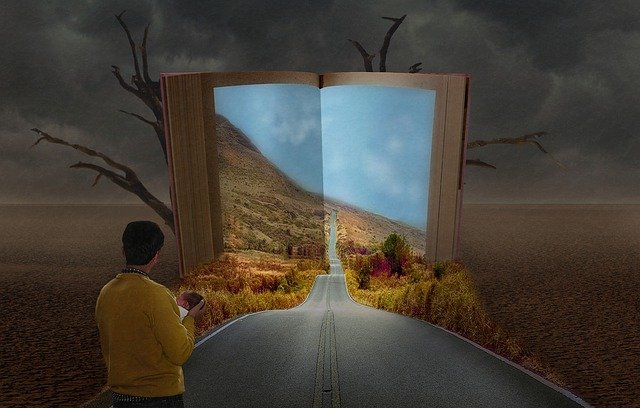
We often recognize stories as having a beginning, middle, and end but do we recognize the smaller points of the Gospel, the pointing to God in literature and storytelling?
The Beginning: What happens in the beginning? The characters are introduced so we know who to look for in the story. The Main Character is introduced with flaws. This character's flaw(s) will lead us to the conflict, the struggle in the story. Fairy tales, picture books, children's books, and novels all contain the flaws of the main character. We relate to this character because we too are not without flaws.
- Red Riding Hood - disobedient to mom, talks to stranger
- Very Hungry Caterpillar by Eric Carle- poor diet, overeating
- Owl Moon by Jane Yolen - immaturity is implied
- Little House in the Big Woods by Laura Ingalls Wilder - disobedient to parents, sneaking breaking cultural norms
- Code of Silence by Tim Shoemaker - lies
The Middle: Here in the middle the consequences of the flaw begin to show themselves. The turmoil and struggle to overcome those consequences.
- Little Red Riding Hood - confronted by the wolf in Grandma's bed
- Very Hungry Caterpillar - becomes sick and tries to fix his problem by eating well
- Owl Moon - child puts a hand over mouth to keep any noise from escaping.
- Little House in the Big Woods - spanking
- Code of Silence - teens are confronted with life-threatening consequences if the truth is told.
The End: In the end the main character has overcome the struggle. There is a new person with new vision in the end.
- Red Riding Hood - the woodcutter (Jesus) enters the scene to kill the wolf (Satan) with Red's realization implying that disobeying and talking to strangers can cause her and others to become entangled in dire consequences. She and Grandma are thankful for the woodcutter.
- Very Hungry Caterpillar - the caterpillar must become a cocoon (die to self) and become a new creature never to return to its old way of life (salvation).
- Owl Moon - the child receives a slight shush from the father but is warmly invited into a conversation after the "hunt" signifying the child has matured, has become "grown-up" like brothers.
- Little House in the Big Woods - Father tans his own jacket as well as that of the boys. A picture that we all suffer the consequences of our sins, sometimes because we choose to impose legalism instead of God's love.
- Code of Silence - there is far less consequences when we tell the truth.
Perhaps as we read to our children beginning at that very young age we can begin to point out more than just the beginning, middle, and end. There is so much more to the story, so many twists and turns just as there is in our lives. It takes a dire consequence to wake up the characters in the books to make a change. Even if that consequence is just missing out on a hunting trip until they are mature enough to follow the rules. It takes a wake-up call to our sins for us to see the need to change and let Jesus have charge. Beginning to show an author's purpose opens the doors to our children's understanding of the gospel.
Thy word is true from the beginning: and every one of thy righteous judgments endureth for ever. Psalms 119:160
Heavenly Father, please teach me to view everything through the eyes of the gospel so I am not deceived by the ideas of man. Let my mind be renewed with the truth of your word. In Jesus's name. Amen.
Hey Kids:
What's your favorite story? It doesn't have to be a kid's story. Maybe you like reading middle grade books or young adult. The author of any story includes a worldview regardless of the storyline itself. The stories mentioned above do have a Christian worldview but there are many that support a secular worldview. We need to be aware not just of a cool story but of what the story is imprinting in our hearts and minds.
What book are you currently reading? Try finding the flaw in the main character shown at the beginning of the story.
Next, find the conflict the flaw creates in the middle of the story.
Finally, how does the main character resolve the problem? Does the character regret the flaw? Is he selfish and trying to justify his actions because his lifestyle is worth it. (as in Trumpet of the Swans)?.
What do you feel the author is trying to teach? Why?



.jpg)